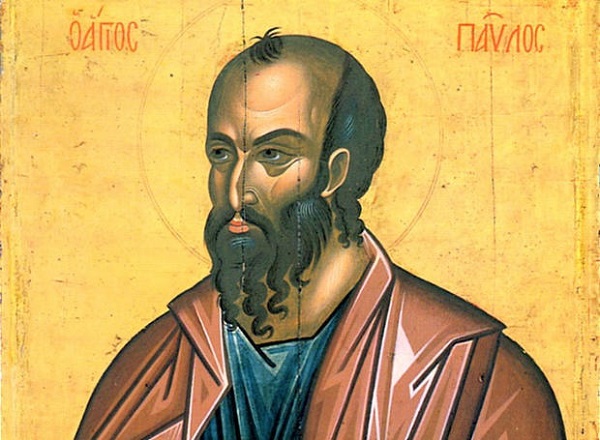Saint Paul’s Chains
15 July 2018What is the greatest glory of Saint Paul the Apostle? What was the greatest of God’s gifts to him? Why should we call him blessed and envy him?

Saint John Chrysostom answers:
‘I call Paul blessed not so much because he was caught up into Paradise as because he was imprisoned for Christ. I don’t call him blessed so much because he heard ineffable words as because he suffered in chains for Christ. Paul himself confirms this when he writes to the Ephesians. He doesn’t say: “I urge you as a person who has heard ineffable words”, but “I beg you as a prisoner in Christ”’.
‘The hands of Saint Paul weren’t so worthy when he cured the cripple in Lystra as they were when they wore manacles. Don’t be surprised that the snake bite didn’t affect him after the shipwreck off Melita*. The snake simply had respect for his chains. This is also how he escaped the waves of the sea: the sea also respected his shackles, since he was being taken prisoner to Rome’.
‘Paul doesn’t please me so much when he’s performing miracles as he does when he’s suffering for Christ. If I were to be asked whether I’d prefer the gift of raising the dead or the opportunity to be fettered for Christ, I’d choose the chains’.
***
Today there’s no danger of being cast into chains for Christ. Unfortunately (according to Saint John Chrysostom), it’s highly unlikely that in our day and age we’ll be awarded such a gift.
We do, however, see other ‘prisons’ multiplying around us, different from those in which they lock up condemned prisoners. These are ‘enchainment centres’, where people go of their own free will to learn how to put chains on themselves. These centres are the slimming institutes, the detox facilities for drug abusers and alcoholics, and -recently- for gamblers. Lots of people go to these ‘prisons’ of their own free will, because they’ve realized that:
• too much ‘freedom’ enslaves us
• real freedom demands ‘chains’ to bind the bodily and spiritual passions
• the passions are ‘bosses’ and differ hardly at all from the worst kind of taskmaster
***
Long before Saint Paul was found worthy of being fettered for Christ, he struggled hard to bind himself with the ‘chains’ of obedience to the will of God. He fought to bind his passions, as he confesses to the Corinthians: ‘ But I discipline my body and keep it under control, lest after preaching to others I myself should be disqualified’ (I Cor. 9, 27).
Having, then, come to love the ‘shackles’ of the Lord’s commandments, he acquired the only real freedom: ‘the freedom of the children of God’. This is why he felt every affliction and manacle borne for the sake of Christ to be an honour and accolade.
And he urges us to see these efforts and ‘chains’ as God’s greatest gifts to us: ‘For it has been granted to you by Christ that you should not only believe in him but also suffer for his sake’ (Philip. 1, 29).






